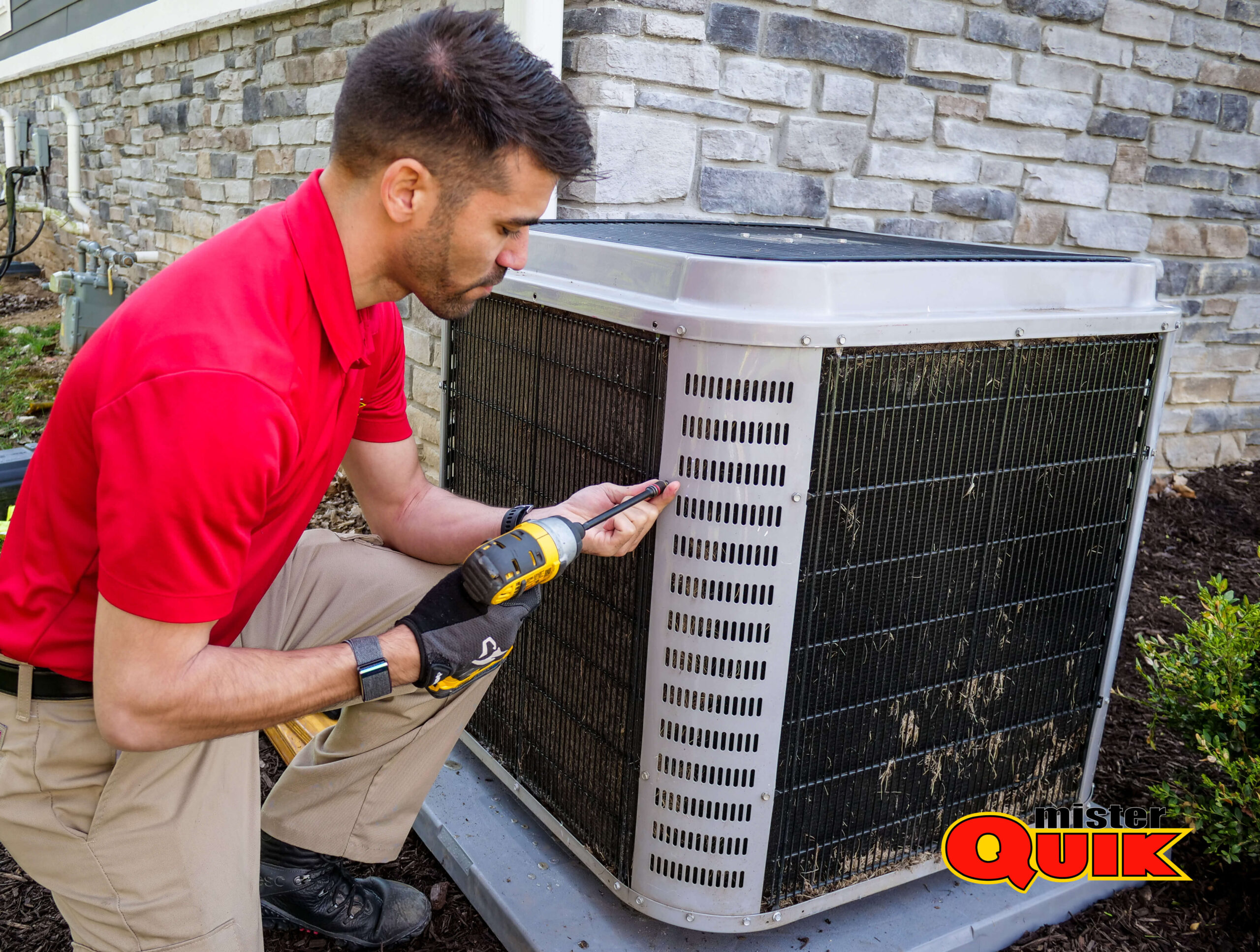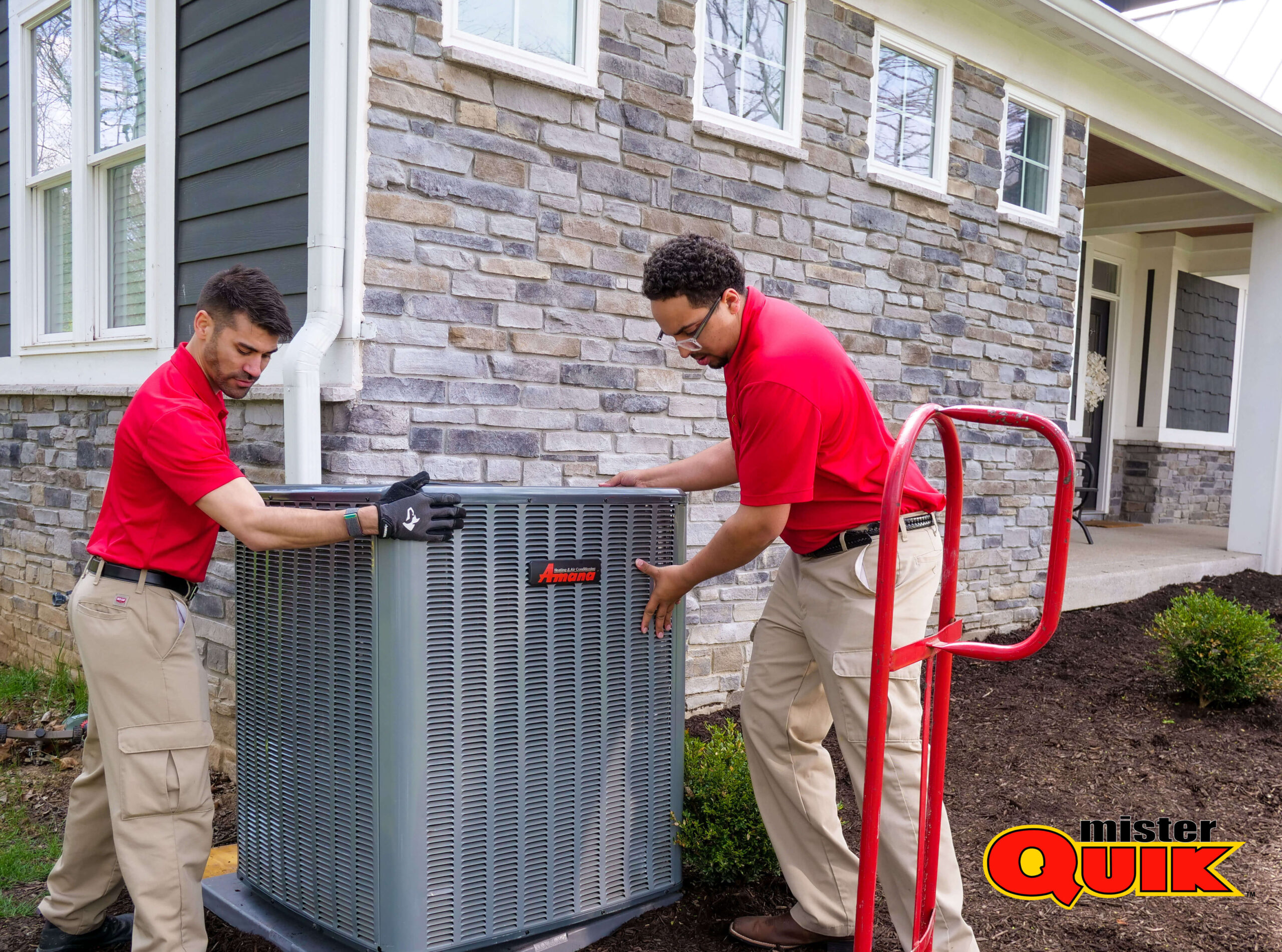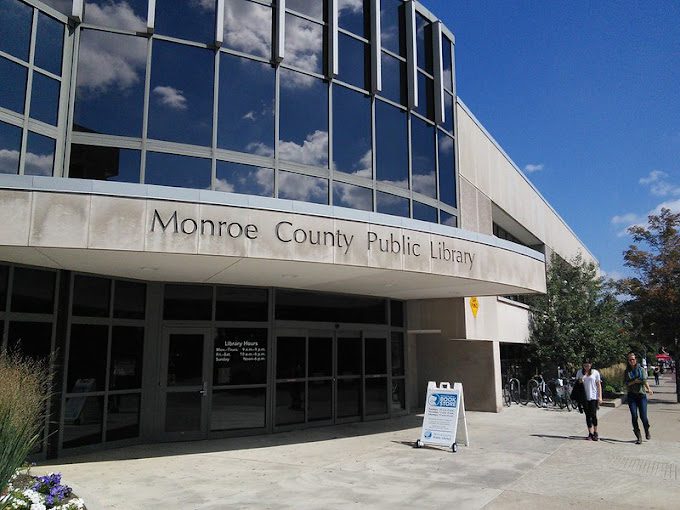HVAC Near Me
Schedule on your own without making a call. Click the button below to get started!

HVAC System
An HVAC system, short for Heating, Ventilation, and Air Conditioning, is your home’s lifeline for comfort.
- Quality HVAC Bloomington IN ensures your system runs smoothly year-round.
- It regulates temperature, humidity, and air quality, keeping your space cozy in winter and cool in summer.
- Consisting of a furnace or heat pump, air conditioner, and ductwork, it’s a complex network working in harmony.
- The furnace or heat pump warms your home during colder months by distributing heated air through vents.
- In summer, the air conditioner cools your space by removing heat and humidity from indoor air.
- Proper ventilation ensures fresh air circulates, reducing indoor pollutants and maintaining air quality.
- Regular maintenance by Quality HVAC Bloomington IN is crucial for optimal performance and longevity.
- Issues like dirty filters, faulty thermostats, or leaking ducts can disrupt comfort and efficiency.
- Trust experienced professionals to diagnose problems and provide timely repairs, restoring comfort to your home.
Bloomington HVAC Maintenance
If you’re experiencing HVAC issues and seeking immediate assistance, prioritizing Bloomington HVAC maintenance can be key to restoring comfort to your home or business. Here’s what you need to know:
Scheduled maintenance for your HVAC system is crucial to prevent unexpected breakdowns and ensure optimal performance. Routine inspections and tune-ups can identify potential issues early on, saving you time and money in the long run.
When selecting a maintenance provider, prioritize quality HVAC Bloomington IN services to guarantee expertise and reliability. Choosing reputable professionals ensures that your system receives top-notch care and attention.
Regular maintenance not only keeps your HVAC system running smoothly but also improves its efficiency. This translates to lower energy bills and reduced environmental impact, making it a win-win for your comfort and sustainability efforts.
Proper maintenance can significantly extend the lifespan of your HVAC system. By addressing minor issues promptly and conducting preventive maintenance tasks, you can maximize the longevity of your equipment and delay the need for costly replacements.
AC, or air conditioning, typically refers to a system that solely cools indoor air, often through a refrigeration cycle, providing comfort in hot weather. HVAC, or heating, ventilation, and air conditioning, encompasses a broader range of systems that not only cool but also heat and ventilate indoor spaces, offering year-round climate control. While AC focuses solely on cooling, HVAC systems provide comprehensive temperature regulation, making them more versatile but also typically more complex and costly to install and maintain.
The four basic categories of HVAC (Heating, Ventilation, and Air Conditioning) systems are split systems, packaged systems, heat pumps, and ductless mini-split systems. Split systems consist of separate indoor and outdoor units, commonly used in residential settings. Packaged systems have all components housed in a single outdoor unit, often preferred for smaller commercial buildings. Heat pumps function both for heating and cooling by transferring heat, suitable for moderate climates. Ductless mini-split systems are versatile, allowing for individual control of temperatures in different rooms without the need for ductwork, commonly used in renovations or additions to existing structures.
The most commonly used HVAC (heating, ventilation, and air conditioning) system is the central forced-air system. This system utilizes a furnace to heat air and a central air conditioner to cool it, distributing the conditioned air through ductwork to various rooms in a building. It’s popular due to its effectiveness in regulating temperature throughout large spaces, relatively straightforward installation process, and the ability to incorporate air filtration and humidification/dehumidification features. Additionally, advancements in technology have made central forced-air systems increasingly energy-efficient, appealing to both residential and commercial settings.
HVAC, or Heating, Ventilation, and Air Conditioning, encompasses a range of systems designed to control indoor temperature, air quality, and humidity levels in residential, commercial, and industrial buildings. Heating systems typically include furnaces, boilers, or heat pumps, while ventilation systems ensure proper air circulation and removal of pollutants. Air conditioning systems utilize various technologies like central air conditioning units, ductless mini-split systems, or window units to cool indoor spaces. Additionally, HVAC systems often integrate thermostats, ductwork, filters, and insulation to optimize efficiency and comfort levels throughout the year.
The lifespan of HVAC systems typically ranges between 15 to 25 years, with proper maintenance playing a crucial role in extending longevity. Factors such as frequency of use, climate conditions, and the quality of installation impact the lifespan significantly. Regular servicing, including filter replacements and system inspections, can help identify and address issues before they escalate, potentially prolonging the lifespan of the HVAC unit. However, technological advancements and energy efficiency improvements may also influence the decision to upgrade or replace an older system before reaching its maximum lifespan.
HVAC Contractors Near Me
Are you facing HVAC issues and need swift assistance? Finding reliable HVAC contractors nearby can be the solution you’re looking for. Here’s how you can easily locate one to address your needs:


Begin by conducting a quick online search using phrases like “HVAC contractors near me” or “quality HVAC Bloomington IN.” This will help you find contractors operating in your area, ensuring prompt service.
Utilize review platforms to assess the reputation and quality of service provided by different HVAC contractors. Look for testimonials from satisfied customers to gauge the reliability of each option.
Verify the credentials of HVAC contractors to ensure they are licensed, bonded, and insured. This guarantees that you’re dealing with professionals who adhere to industry standards and regulations.
Opt for contractors who offer 24/7 emergency services. HVAC issues can arise at any time, and having access to round-the-clock assistance ensures peace of mind, especially during critical situations.
Look for contractors who provide transparent pricing and detailed estimates upfront. This prevents any surprises when it comes to billing and helps you plan your budget accordingly.
HVAC Cost
Understanding HVAC costs is crucial when facing HVAC issues and seeking immediate services. Here’s a breakdown of what’s typically included and what’s not in HVAC expenses:
- Included Costs:


The cost of the HVAC unit itself, whether it's a furnace, air conditioner, heat pump, or boiler.


Expenses associated with installing the HVAC system, including labor, materials, and permits.


If needed, the cost of installing or repairing ductwork to ensure proper airflow throughout your home or business.
HVAC Technician
When facing HVAC issues and in need of immediate services, understanding the duties of an HVAC technician can help you navigate the repair process efficiently. Here’s what you can expect from a qualified technician:
1. Diagnostic Skills:
A skilled HVAC technician possesses the ability to diagnose various issues affecting heating, ventilation, and air conditioning systems accurately.
2. Repair and Maintenance:
Technicians are proficient in repairing and maintaining HVAC equipment, including furnaces, air conditioners, heat pumps, and boilers, ensuring optimal performance and longevity.
3. Installation Expertise:
Quality HVAC Bloomington IN technicians are trained to install new HVAC systems efficiently and effectively, adhering to industry standards and manufacturer specifications.
4. Troubleshooting:
When HVAC systems malfunction, technicians are equipped to troubleshoot problems systematically, identifying root causes and implementing appropriate solutions.
Types of HVAC Systems
When facing HVAC issues and seeking immediate services, understanding the different types of HVAC systems can help you make informed decisions. Here’s a brief overview:
The most common type consists of separate units for heating and cooling. The indoor unit contains the evaporator coil and air handler, while the outdoor unit houses the compressor and condenser coil.
All components (heating and cooling) housed in a single unit are typically installed outdoors. Suitable for homes with limited indoor space.
Similar to split systems but without ductwork. Ideal for room additions or homes lacking ductwork.
Provide both heating and cooling by transferring heat between indoor and outdoor air. Efficient option for moderate climates.
Utilize heat from the ground for heating and cooling. Energy-efficient but requires a substantial upfront investment.
By implementing these energy-efficient measures, you can significantly reduce your heating costs and enjoy a more comfortable living environment.
- Ensure the thermostat is set to the correct mode (heating or cooling).
- Verify temperature settings are appropriate for comfort.
- Check air filters for dirt and debris buildup.
- Replace or clean filters if dirty to improve airflow and system efficiency.
- Look for visible signs of leaks or damage in ductwork.
- Seal any leaks found to prevent air loss and improve system performance.
- Inspect circuit breakers or fuses associated with the HVAC system.
- Reset tripped breakers or replace blown fuses if necessary.
- Ensure the outdoor unit is free from debris and obstructions.
- Check for ice buildup or unusual sounds coming from the unit.








